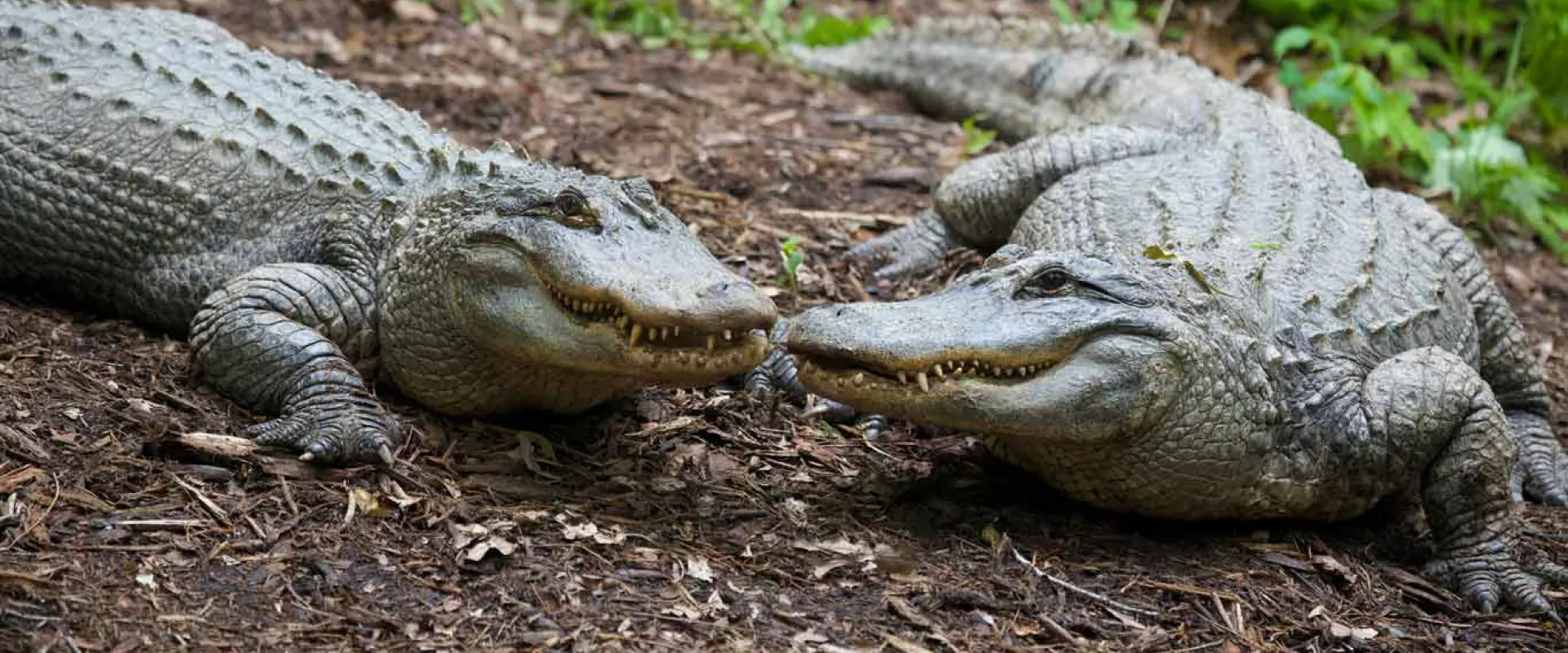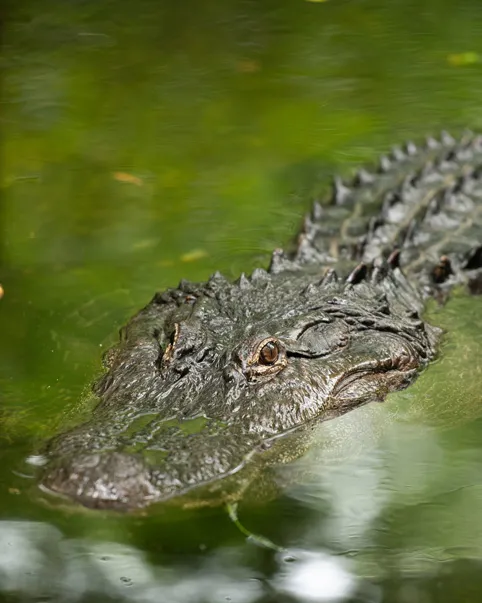About:
Did you know the 80 teeth of alligators are constantly replaced? Learn more about alligators.
Care & Wellness:
Natural habitats and proper social groups result in breeding, nest building, and other natural behaviors. Training builds trust between the alligators and keepers. This training allows keepers and veterinarians to observe individuals and even draw blood without restraining the animals.
Behavior:
- May be found in loose groups, but usually ignore each other
- May stay underwater for hours if not active
- Tail is used to push them through the water and acts as a rudder
- Males court females by using sound, touch, and by exposing their necks to them
Endangered Status
- Least Concern (LC)



